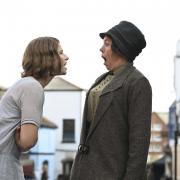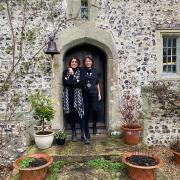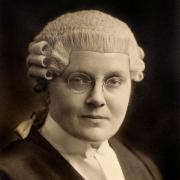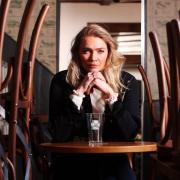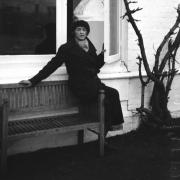Nutbourne woman Julie Hill was 28 when she was paralysed from the waist down. A year later she was water skiing. Recently she received a British Citizen Award for her 25 years of voluntary work with spinal cord charity Back Up. She tells Jenny Mark-Bell that her work is all about building confidence
Julie Hill was just 28 when a car accident near Chichester severed her spinal cord, leaving her paralysed below the waist. Before the accident “keeping fit was running to the car” yet within a year she was water skiing.
Twenty seven years later, in January, Julie accepted a British Citizen Award (BCA) at the Palace of Westminster for her tireless voluntary work for the spinal cord charity Back Up.
Julie’s sons Nathan and Daniel were six and four when she had her accident and Julie clearly feels it was important that “they’ve grown up with a mum that’s out and doing”. Of that first water skiing activity holiday she says: “It completely changed my life and made me think about what I could do as opposed to what I couldn’t do. That ripple effect just went all around the family.”
It is 25 years since Julie became a Back Up service user and she has grown with the charity, which celebrated its 30th anniversary in 2016. After participating in trips Julie became a group leader. Mentoring is an important part of the charity’s remit and Julie has been delighted to see those she helped becoming mentors themselves: “It’s basically talking through those early days, any concerns that they may have we can try to put them on the right track and encourage them to embrace their new life.” Building confidence is key and urging people to push themselves physically on group trips is an important part of the process. “When you’ve sped down a mountain, scuba dived, abseiled, kayaked or canoed, all of a sudden going to Tesco isn’t such a problem any more.”
There is support with fundamental skills too though. Service users are likely to have their first contact with Back Up in a spinal injury unit, where they teach wheelchair skills to the newly injured. And Julie leads City Skills courses, most recently in Edinburgh – “Which is quite hilly, so it was a challenge!” – teaching people things such as using public transport in a chair or dining in restaurants.
Most recently she completed a training course to become a schools advocate to help the transition of children with a spinal cord injury get back into mainstream school.
Talking at her home in Nutbourne Julie is self-deprecating about her British Citizen Award: “Obviously it’s lovely to be recognised but at the end of the day, I love doing what I do and I get as much out of it as I give.” With a quiet energy and enthusiasm Julie seems to be one of those people who just get things done. Take, for example, the Snowdon Push she did a couple of years ago, Gaffer-taped into a heavily adapted chair with a group of people pushing and pulling with ropes and slings. “It was probably the hardest thing I’ve ever done in my life actually, it was amazing to achieve it,” she reflects, remembering how it felt to sit at the summit of the mountain in her wheelchair.
And of course there have been metaphorical mountains to climb too. Julie’s story was told for television in Footprints in the Snow, a 2005 television dramatisation of her memoir published in 2000. Caroline Quentin played Julie while Lewis star Kevin Whately was her husband – also called Kevin. “It was very surreal,” says Julie. “It was actually daunting for Caroline as well because it was the first time she’d played somebody who wasn’t a fictional character.”
The starting point for the book and for the drama was Julie’s involvement in a pioneering study measuring the success of an implanted device which stimulated the nerves below the break with electric impulses. The team of scientists from UCL hoped this would eventually enable her to walk again.
Julie became the first person in the world to have the operation and two documentaries – Inside Story and QED – followed her progress. “The title, Footprints in the Snow, was a whimsical comment I made to the director of the documentary,” she says. “He said ‘What would you like to do, if this works?’ and I said ‘I’d like to leave footprints in the snow again.’”
With the implant’s help she managed to stand and even cycle but it became clear that walking was not going to be possible and funding ran out. But the book’s publication 16 years ago was far from being the end of the story.
While the science continues to improve, Julie’s priorities have changed: “At the end of the day, walking again isn’t the be-all-and-end-all and being comfortable in myself and what I can do is just as important. I’m 27 years down the line now with my injury and I’m me – and that’s great.”
It’s a good place to be – and Julie’s still writing her story.
More…












